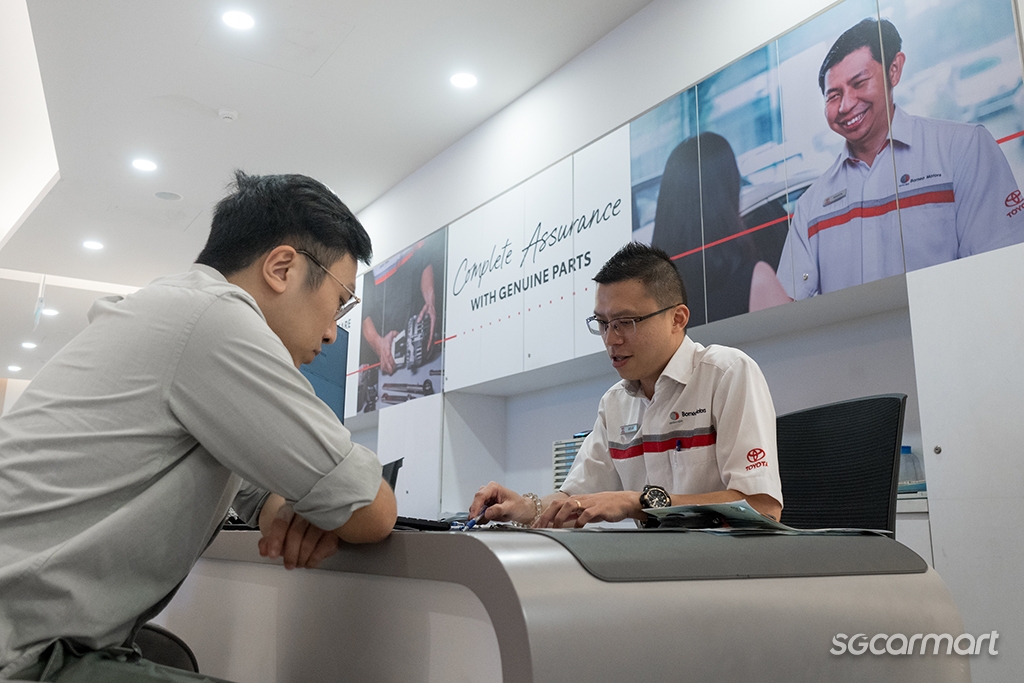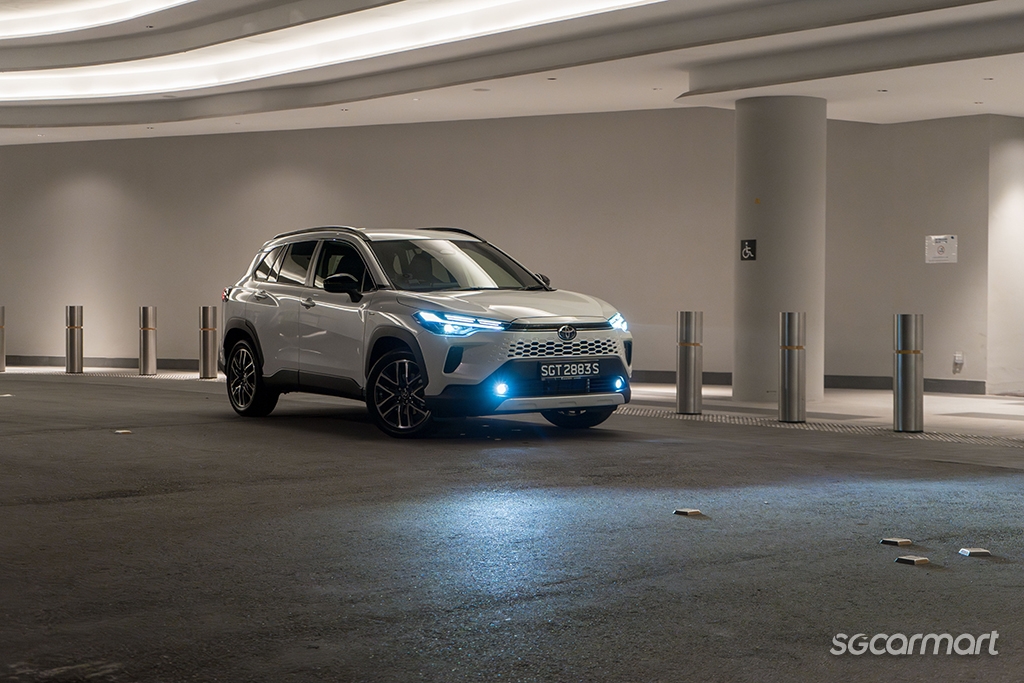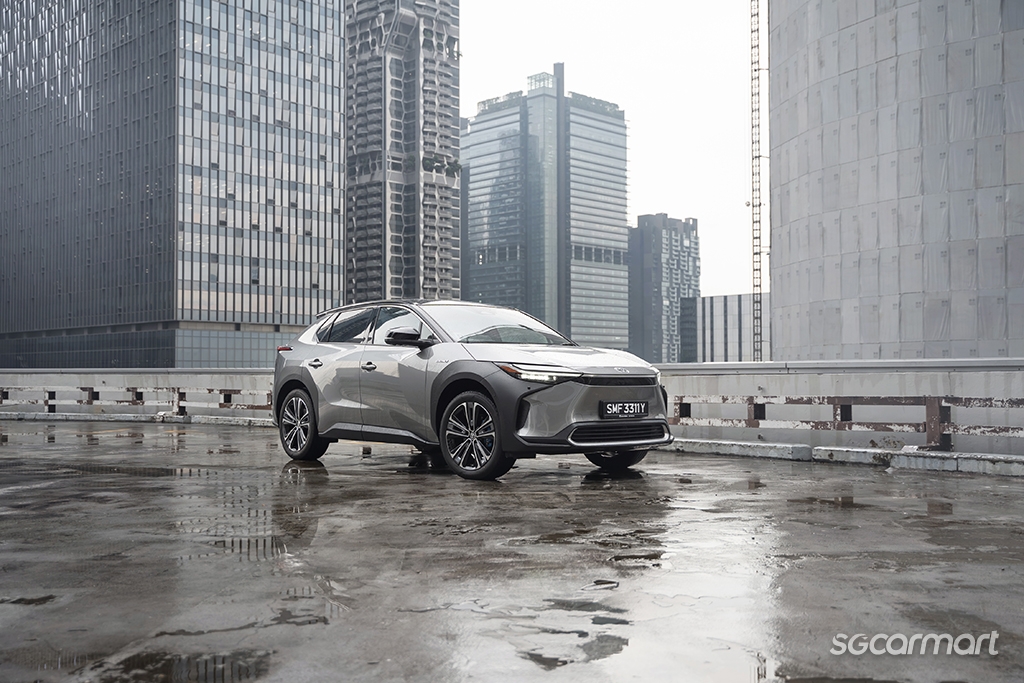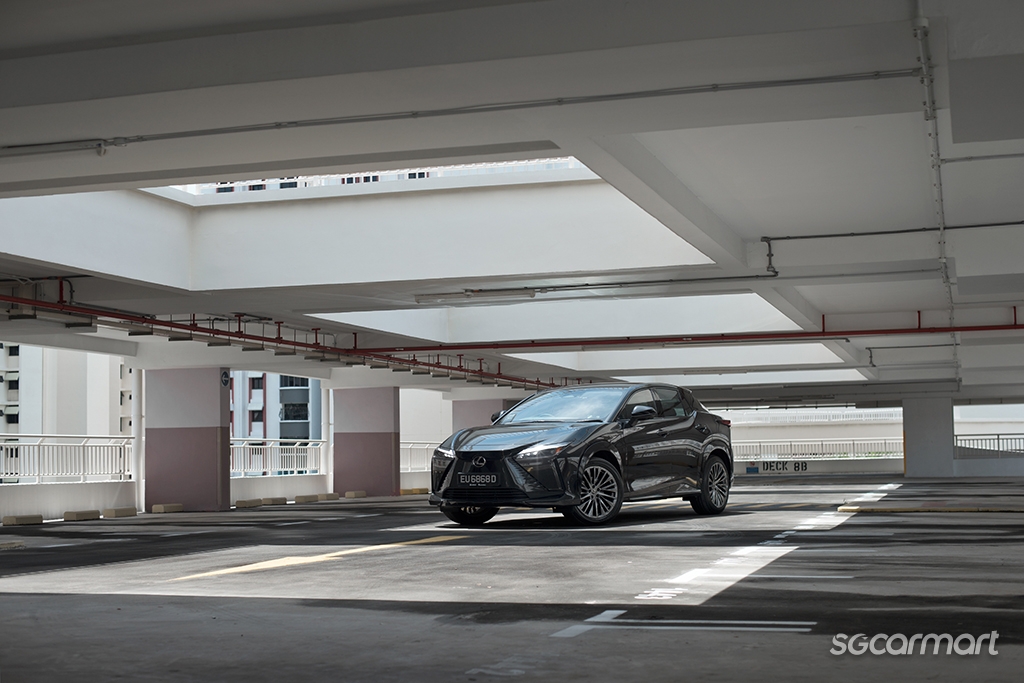100 years on, Borneo Motors continues to play the long game
07 Nov 2025|359 views
Borneo Motors Singapore (BMS) was once known for being the official distributor for Austin, but it must be pretty happy that it made the decision to relinquish the now-defunct British marque and fully commit to Toyota back in 1967.
Some patience was required; it would take another four decades for Toyota to first clinch the title of the largest carmaker in the world, back in 2008. But Japan's biggest name in the auto industry has steadily held onto that position since. Despite the increasing might of new players in recent years (especially from China), Toyota's dominant position over the longer term is still impossible to dispute.
The story is arguably the same in Singapore. As BMS continues its centennial festivities on our shores, the company has an extensive legacy to be proud of: There are over 200,000 Toyota vehicles on our roads today - an incredible sum that effectively means that one out of every four vehicles here is a Toyota.
Proven track record amidst rising competition
Mr Ng Khee Siong, Managing Director of Borneo Motors Singapore, asserts that the crux to this success lies in the 'customer-first mentality' that BMS and Toyota share.
Naysayers may dismiss this as a statement parroted by nearly every brand, but Ng notes that BMS' longstanding reputation speaks for itself. "The key has always been to listen, adapt, and stay close to our customers, which is why we have one of the most reputable aftersales servicing teams in Singapore.”
Buying from an established name, after all, has tangible benefits. Legacy carmakers today may admittedly fall short in terms of the hype and apparent value brandished by newer names, but the flip side is that they have extensive track records to show for - especially for a name of Toyota's stature.
Borneo Motors believes that its aftersales support channels are among the strongest in the market today
"With car models spanning across several generations, parts are always available and supported by renowned trusted aftersales support," Ng proffers.
He points to the quality of reliability often associated with Toyotas and Lexuses, before appealing to the money-minded Singaporean.
"Toyota and Lexus vehicles [are] consistently among those with the highest resale value in the market," he notes. Continuing pointedly, he elaborates: "Customers benefit from consistent pricing, attractive refinancing options, and the assurance that their investment holds its worth over time - with value not being distorted by reclassification or frequent deep tactical discounts."
Longstanding truth: Toyotas and Lexuses are known for holding their resale values well in the used car market here
For the road ahead, BMS' faith in the Toyota way remains unshakeable. (And if you need further convincing, just look to its Leng Kee spaces; both the Toyota showroom and Lexus Boutique received thorough refreshes within the last two years.)
The past few years have seen established authorised dealers including the likes of Eurokars Group, Premium Automobiles and of course, Vantage Automotive bring in buzzy, new names to bolster their brand portfolios. When asked about possible intentions for BMS to pursue a similar path, however, Ng's response is decisive and clear.
"BMS will continue building its legacy by deepening and strengthening our relationship with Toyota, Lexus, and Hino," he says, asserting that the company is "completely aligned with Toyota's vision".
BMS also has full faith in the multi-pathway strategy employed by Toyota, which it believes will give customers the freedom of choice
Maintaining freedom of choice for customers
Embedded strongly within as well is Toyota's renowned 'multi-pathway' strategy, comprising not just battery-electric vehicles (BEVs), but also hybrid electric vehicles (HEVs), plug-in hybrid electric vehicles (PHEVs) and internal combustion engine (ICE) cars too.
On first glance, that sort of approach might seem questionable given how car-buying habits have trended in recent years. With a 43% share of new car registrations from January to September this year, interest in EVs has stood at an all-time high thus far in 2025.
China's might in the new energy arena has undoubtedly come to the fore amidst this changing electric tide, with the likes of GAC, XPENG and of course, BYD taking market share away from older names. So too does America's Tesla continue to perform commendably.
Toyota and Lexus have admittedly lagged behind other peers in bringing BEV models to the market (Pictured: Toyota bZ4X and Lexus RZ450e)
But it's also worth pointing out that legacy carmakers that have thrown their hats more unreservedly into the electric arena appear to be weathering the onslaught of new contenders better than those who have been hesitant. At least across the past two years, it's not hard to wonder if the dearth of electric-only models offered by Toyota and Lexus has made a dent in potential sales.
Here, however, Ng returns once again to the idea of a customer-first mentality.
"A single solution, such as a full BEV, may not suit everyone's lifestyle, budget, or driving habits…. We believe this [multi-pathway] approach will position us at the forefront and key driver for sustainable growth, even as the market evolves."
He is nonetheless excited for the distributorship to launch new EV models in 2026, which will arrive "as part of [the company's] next stage of electrification... complementing our broader green energy strategy."
Forecasting exactly how the next 100 years will look like is an impossible task - and even BMS knows this. "Mobility may go beyond cars on the roads, to a future where we may not even have roads as we know them today," Ng admits.
Nonetheless, his faith in BMS' leading position not just in the automotive but larger mobility space is unwavering: "I believe Borneo Motors Singapore will still be a name synonymous with trust, reliability, and innovation, continuing to play an active role in shaping mobility."
Here are a few other stories that may be of interest to you!
Big Test: Which brand makes the best hybrid?
Borneo Motors Singapore (BMS) was once known for being the official distributor for Austin, but it must be pretty happy that it made the decision to relinquish the now-defunct British marque and fully commit to Toyota back in 1967.
Some patience was required; it would take another four decades for Toyota to first clinch the title of the largest carmaker in the world, back in 2008. But Japan's biggest name in the auto industry has steadily held onto that position since. Despite the increasing might of new players in recent years (especially from China), Toyota's dominant position over the longer term is still impossible to dispute.
The story is arguably the same in Singapore. As BMS continues its centennial festivities on our shores, the company has an extensive legacy to be proud of: There are over 200,000 Toyota vehicles on our roads today - an incredible sum that effectively means that one out of every four vehicles here is a Toyota.
Proven track record amidst rising competition
Mr Ng Khee Siong, Managing Director of Borneo Motors Singapore, asserts that the crux to this success lies in the 'customer-first mentality' that BMS and Toyota share.
Naysayers may dismiss this as a statement parroted by nearly every brand, but Ng notes that BMS' longstanding reputation speaks for itself. "The key has always been to listen, adapt, and stay close to our customers, which is why we have one of the most reputable aftersales servicing teams in Singapore.”
Buying from an established name, after all, has tangible benefits. Legacy carmakers today may admittedly fall short in terms of the hype and apparent value brandished by newer names, but the flip side is that they have extensive track records to show for - especially for a name of Toyota's stature.
Borneo Motors believes that its aftersales support channels are among the strongest in the market today
"With car models spanning across several generations, parts are always available and supported by renowned trusted aftersales support," Ng proffers.
He points to the quality of reliability often associated with Toyotas and Lexuses, before appealing to the money-minded Singaporean.
"Toyota and Lexus vehicles [are] consistently among those with the highest resale value in the market," he notes. Continuing pointedly, he elaborates: "Customers benefit from consistent pricing, attractive refinancing options, and the assurance that their investment holds its worth over time - with value not being distorted by reclassification or frequent deep tactical discounts."
Longstanding truth: Toyotas and Lexuses are known for holding their resale values well in the used car market here
For the road ahead, BMS' faith in the Toyota way remains unshakeable. (And if you need further convincing, just look to its Leng Kee spaces; both the Toyota showroom and Lexus Boutique received thorough refreshes within the last two years.)
The past few years have seen established authorised dealers including the likes of Eurokars Group, Premium Automobiles and of course, Vantage Automotive bring in buzzy, new names to bolster their brand portfolios. When asked about possible intentions for BMS to pursue a similar path, however, Ng's response is decisive and clear.
"BMS will continue building its legacy by deepening and strengthening our relationship with Toyota, Lexus, and Hino," he says, asserting that the company is "completely aligned with Toyota's vision".
BMS also has full faith in the multi-pathway strategy employed by Toyota, which it believes will give customers the freedom of choice
Maintaining freedom of choice for customers
Embedded strongly within as well is Toyota's renowned 'multi-pathway' strategy, comprising not just battery-electric vehicles (BEVs), but also hybrid electric vehicles (HEVs), plug-in hybrid electric vehicles (PHEVs) and internal combustion engine (ICE) cars too.
On first glance, that sort of approach might seem questionable given how car-buying habits have trended in recent years. With a 43% share of new car registrations from January to September this year, interest in EVs has stood at an all-time high thus far in 2025.
China's might in the new energy arena has undoubtedly come to the fore amidst this changing electric tide, with the likes of GAC, XPENG and of course, BYD taking market share away from older names. So too does America's Tesla continue to perform commendably.
Toyota and Lexus have admittedly lagged behind other peers in bringing BEV models to the market (Pictured: Toyota bZ4X and Lexus RZ450e)
But it's also worth pointing out that legacy carmakers that have thrown their hats more unreservedly into the electric arena appear to be weathering the onslaught of new contenders better than those who have been hesitant. At least across the past two years, it's not hard to wonder if the dearth of electric-only models offered by Toyota and Lexus has made a dent in potential sales.
Here, however, Ng returns once again to the idea of a customer-first mentality.
"A single solution, such as a full BEV, may not suit everyone's lifestyle, budget, or driving habits…. We believe this [multi-pathway] approach will position us at the forefront and key driver for sustainable growth, even as the market evolves."
He is nonetheless excited for the distributorship to launch new EV models in 2026, which will arrive "as part of [the company's] next stage of electrification... complementing our broader green energy strategy."
Forecasting exactly how the next 100 years will look like is an impossible task - and even BMS knows this. "Mobility may go beyond cars on the roads, to a future where we may not even have roads as we know them today," Ng admits.
Nonetheless, his faith in BMS' leading position not just in the automotive but larger mobility space is unwavering: "I believe Borneo Motors Singapore will still be a name synonymous with trust, reliability, and innovation, continuing to play an active role in shaping mobility."
Here are a few other stories that may be of interest to you!
Big Test: Which brand makes the best hybrid?
Thank You For Your Subscription.











































